
How do healthcare workers defeat diarrheal disease?
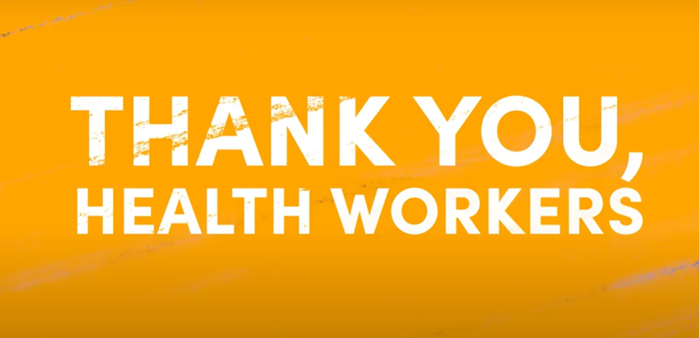
Healthcare workers are an essential component of every health system around the world. This includes nurses, doctors, caregivers, as well as any personnel who deliver care services. From our work in the global health field, we’ve seen the incredible work of these individuals, as they provide lifesaving immunizations, health education, primary care services, advocacy, and more. In hospital settings, rural villages, clinics, schools, community meetings, homes, and innumerous other potentially unexpected locations – healthcare workers and community health volunteers provide necessary care that reduce the burden of diarrhea and other diseases.
Primary healthcare workers:
A strong primary healthcare system is important for preventive health services, diagnosis, and treatment. For diarrhea prevention, this includes rotavirus vaccine delivery. For diarrhea treatment, this includes managing dangerous dehydration with oral rehydration solution and zinc or, in severe cases, delivery of IV fluids. As we have learned from former pediatricians Alfred Ochola and Mathu Santosham it is heartwarming to see children recovering within hours thanks to the miraculous work of ORS. When caregivers visit clinics for vaccination or diarrhea treatment, we have seen health workers impart critical information about child health, such as the nurses did for Catherine and for Teresa, each of whom sought help when their sons fell ill with diarrhea.
A quality healthcare system can act as a foundation for improved overall community health. Dr. Olago from the Kenya Ministry of Health stated, “within primary healthcare networks, we can ensure that we have the quality of services that people need closest to them”, which acts as an example of the expansive benefits of primary care – that would not be possible without dedicated healthcare workers.
Community health workers:
In addition to medical staff, we are amazed by the dedication of community health workers, volunteers, educators, and advocates who are essential stakeholders in the effort to prevent and treat diarrhea in community settings. Here are a few individuals who have been a source of inspiration for the DefeatDD team over the years:
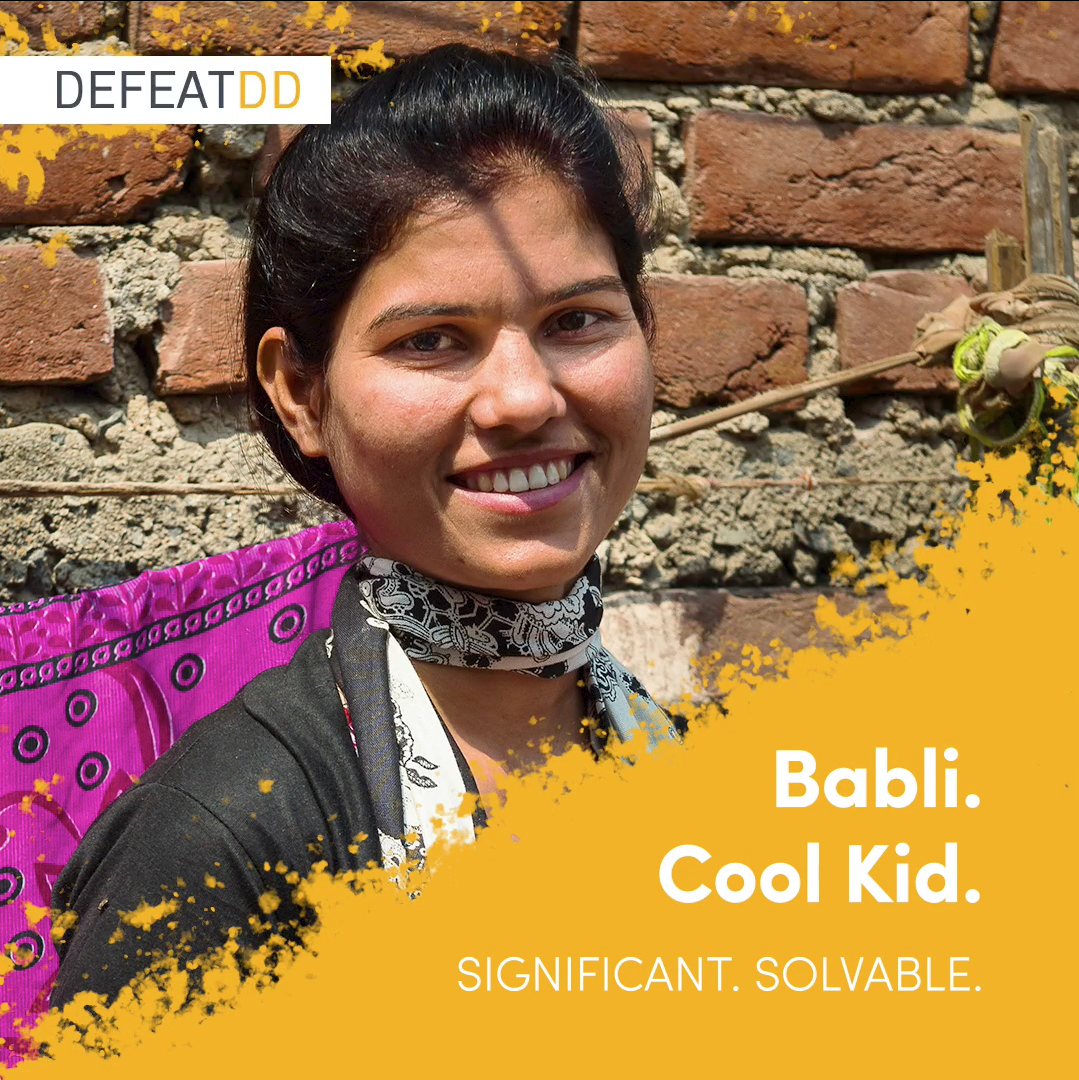 Babli, a community health volunteer in rural India, educated children and community members on the importance of good handwashing to reduce risk of disease.
Babli, a community health volunteer in rural India, educated children and community members on the importance of good handwashing to reduce risk of disease.
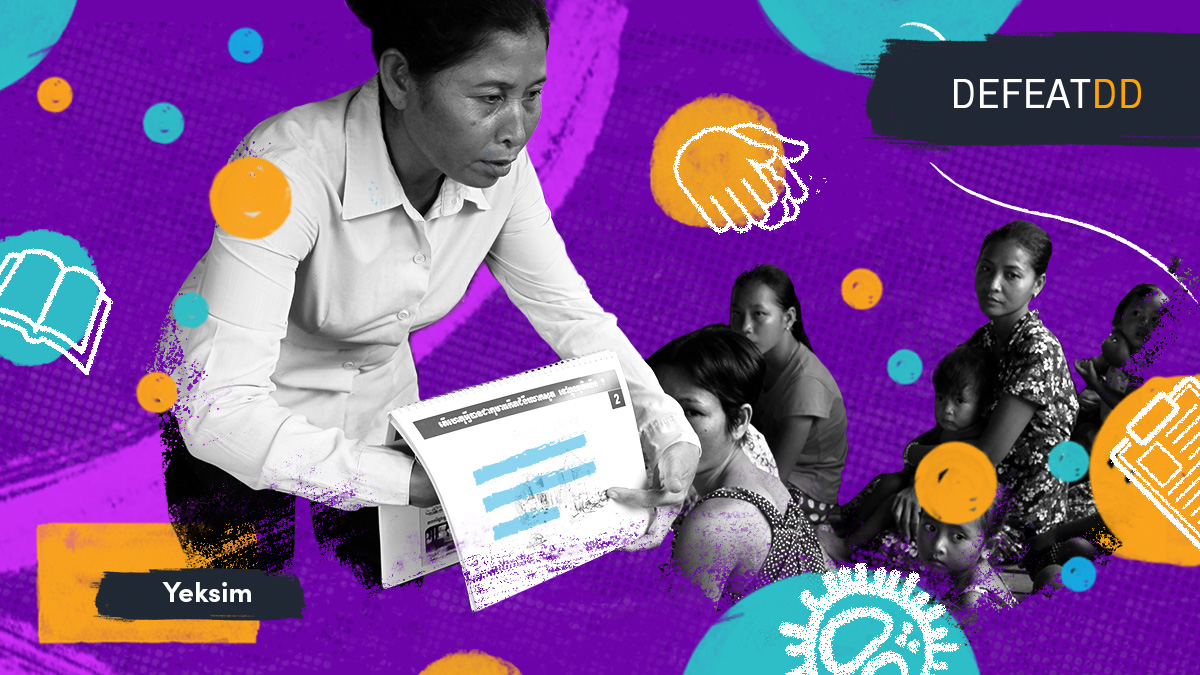 Yeksim, a village vice-chief in central Cambodia and health volunteer, taught families in her community how to prevent and treat diarrhea and pneumonia.
Yeksim, a village vice-chief in central Cambodia and health volunteer, taught families in her community how to prevent and treat diarrhea and pneumonia.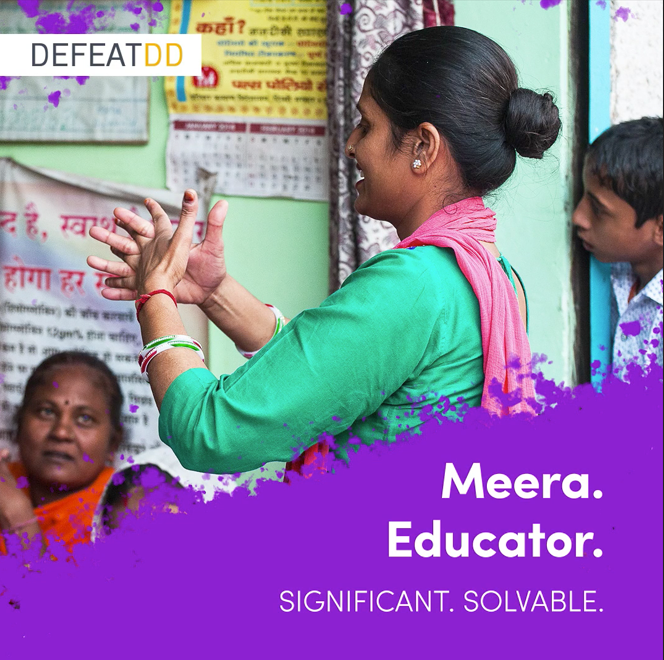 Meera, a community health educator in India, supports new mothers by teaching proper handwashing education – an effort that leads to better care for the child and the entire family.
Meera, a community health educator in India, supports new mothers by teaching proper handwashing education – an effort that leads to better care for the child and the entire family.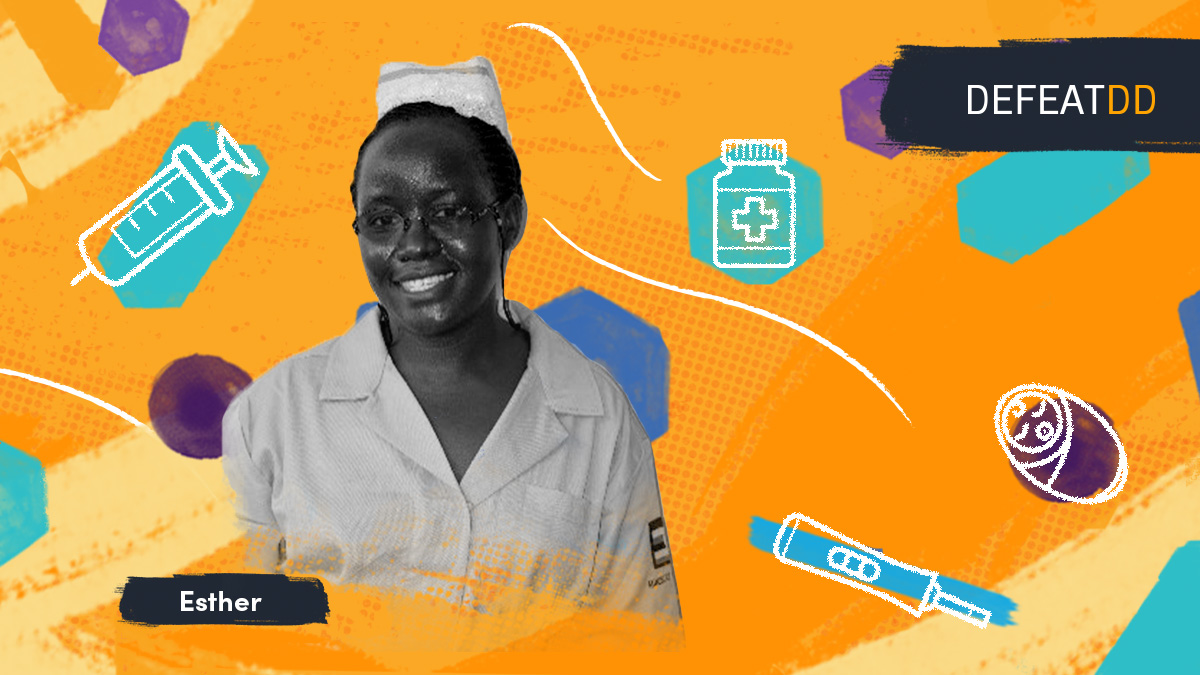 Esther, a midwife in Eastern Uganda, started an effort to package vaccination clinics with other essential services.
Esther, a midwife in Eastern Uganda, started an effort to package vaccination clinics with other essential services.
We have witnessed the essential role healthcare workers play in providing care for their communities, their countries, and the world. They deserve to be celebrated, and in addition, they deserve adequate resources and investment. Many healthcare workers and community volunteers around the world are compensated minimally, or not paid at all. Gender inequities are also prevalent among community health workers, as women often fill these roles. In recent years the global health community has made progress to increase recognition of the dedication of these workers and their vital role in providing healthcare to communities, but there is more work to be done. Let’s further efforts to increase fair compensation and gender equity for healthcare workers and community volunteers – use your channels to share their stories of impact and call for their continued support. It’s up to all of us to ensure that children have what they need to have the best shot at a healthy future.


